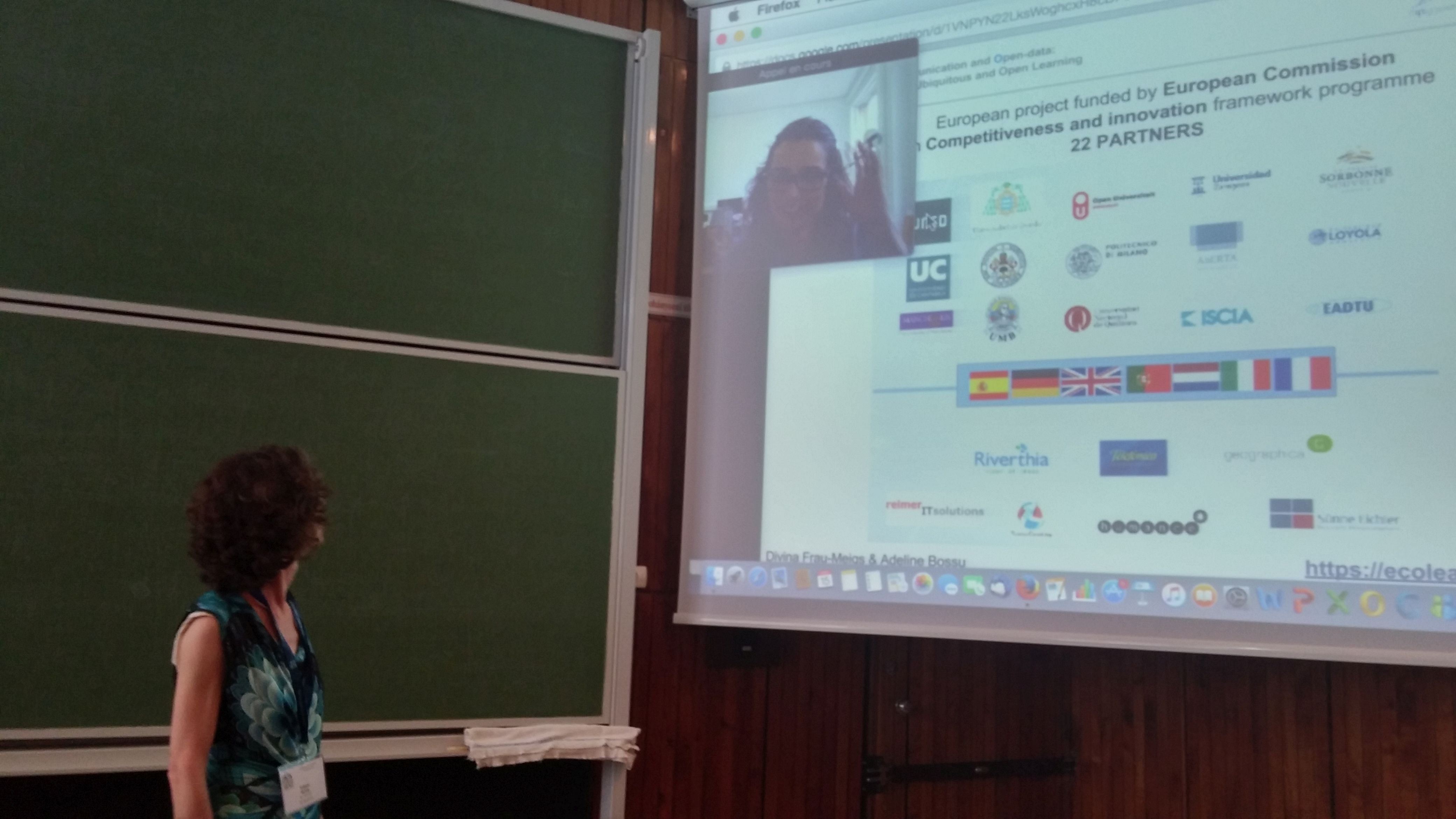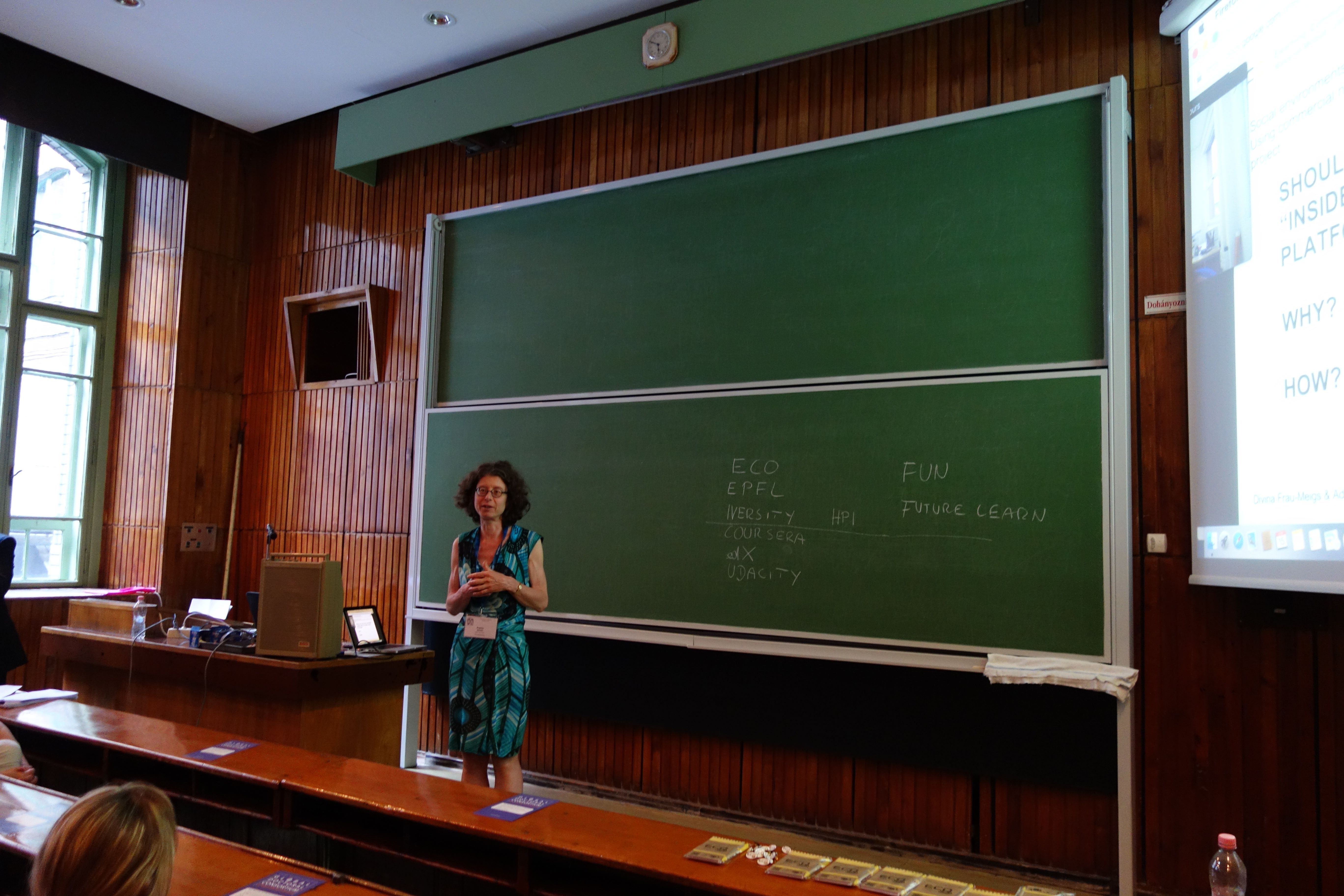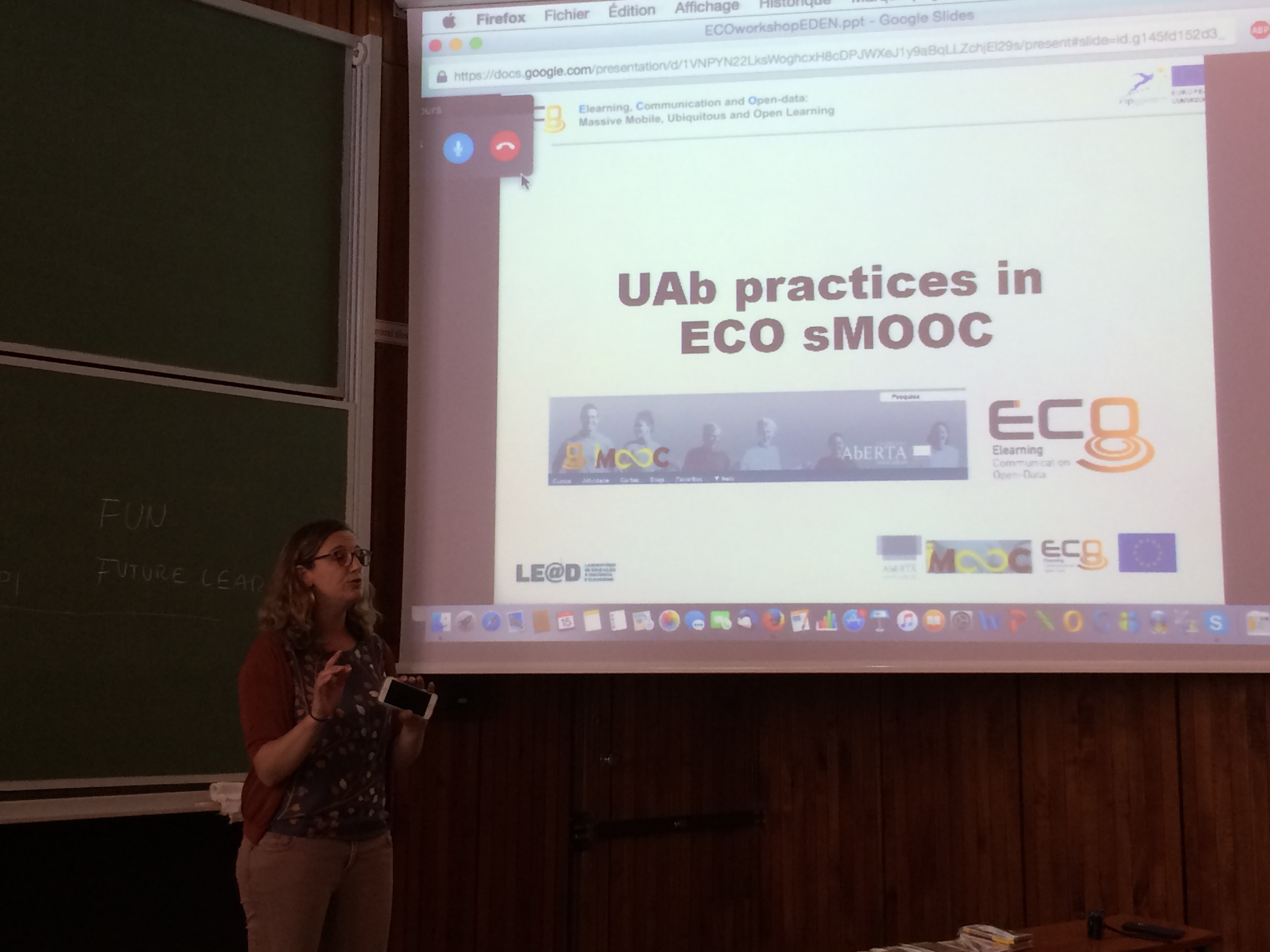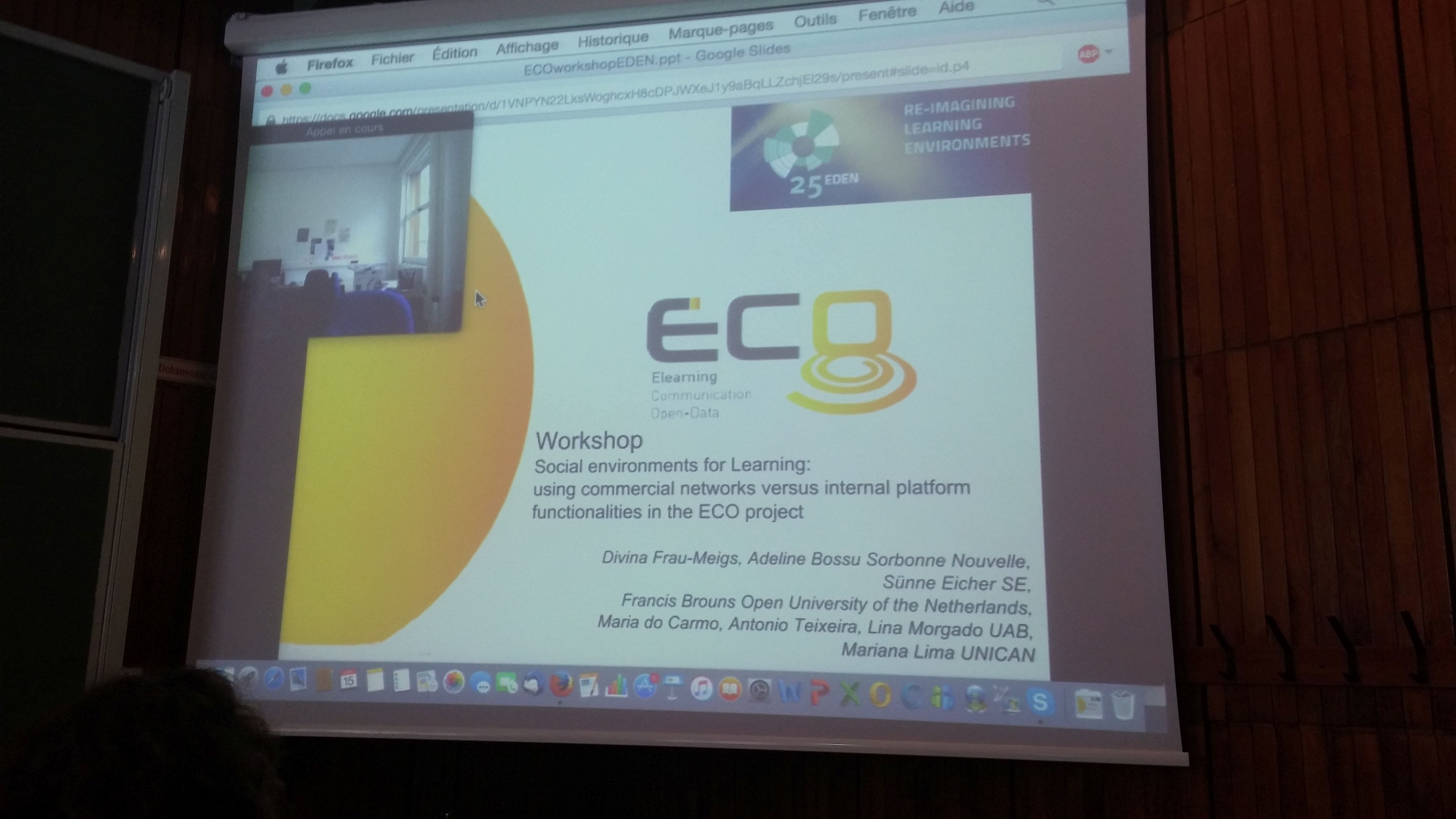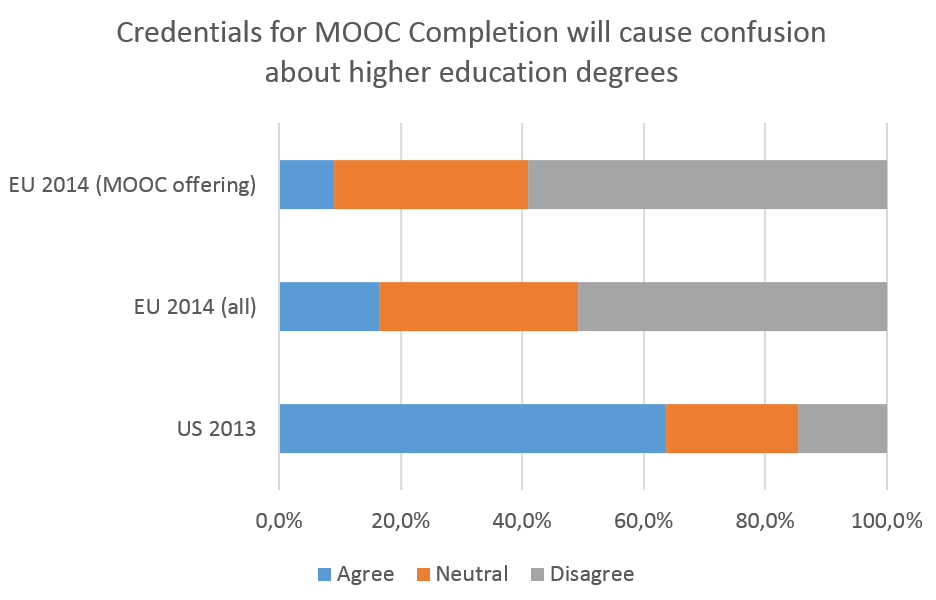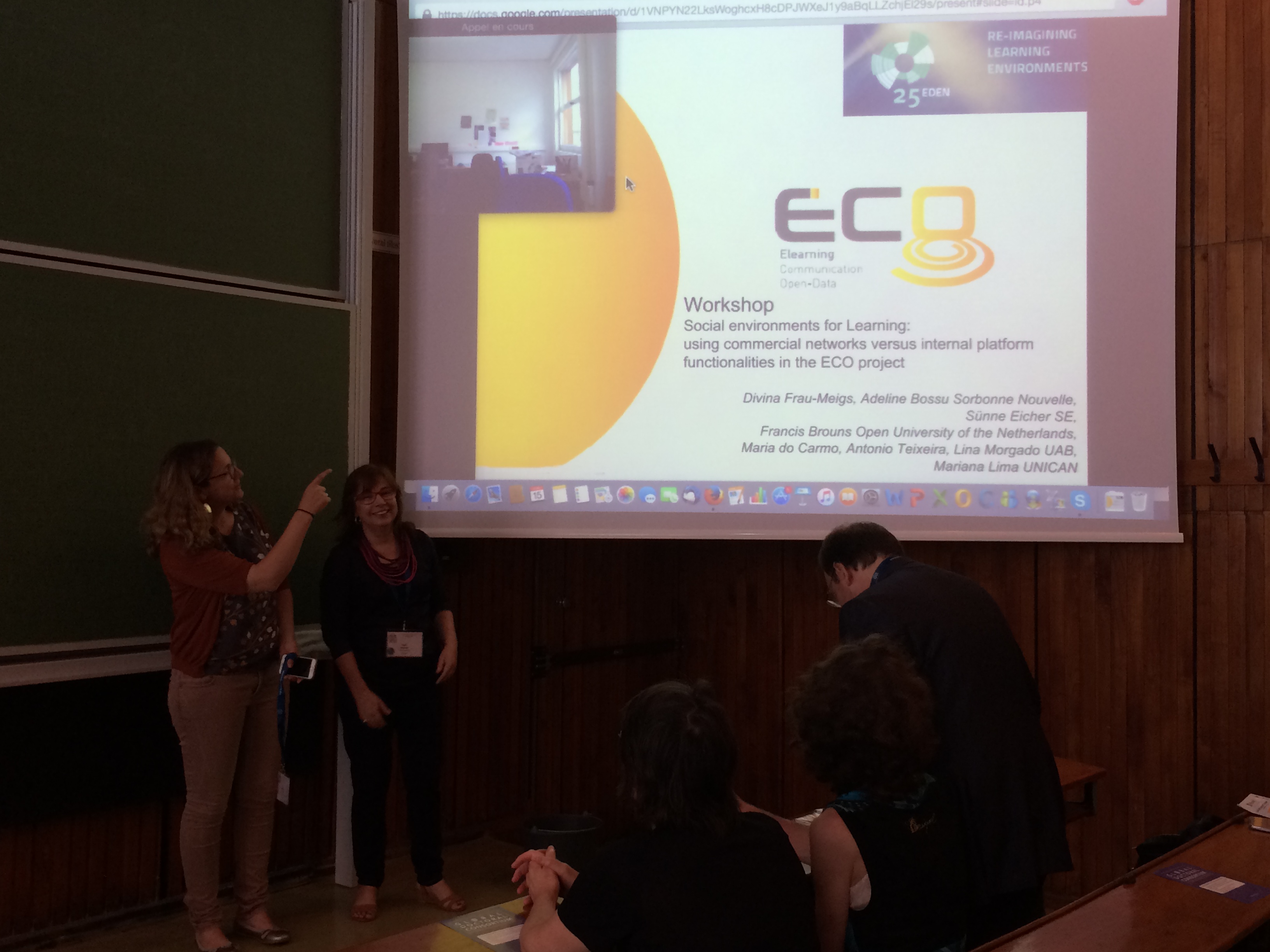
On the 15th of June, representatives of the ECO project organised a workshop on social learning at one of the most relevant MOOC conferences in Europe, the EDEN Conference in Budapest:
The ECO-workshop was entitled “Social environments for Learning: Using commercial networks versus internal platform functionalities in the ECO project.”
and was prepared and conducted by:
- Convenors: Divina Frau Meigs, Adeline Bossu, Sorbonne Nouvelle
- Moderator: Sünne Eicher, SE, ECO Project
Social Learning as an accelerator
MOOCs are an essential part of open education and highly effective tool for social inclusion. The very nature of the massive, open learning modules such as proposed by ECO and other MOOC providers creates a socially inclusive platform. In addition, the ECO MOOC designers created modules that derive their learning models based on peer reviews and learning by sharing knowledge. In this workshop, social learning within the ECO Project is being used actively in the global MOOC Step by Step, which teaches the participants and future eTeachers how to create their own MOOC module. Knowledge sharing between is an essential part of the social learning premise of this MOOC.
ECO Workshop Content at EDEN MOOC Conference
In this workshop ECO discussed the controversial use of commercial social networks within learning environments, where privacy and traceability, are an issue in proposing this format.
Understanding the dynamics of such participatory tools is crucial to social MOOCs. They are a vital part of the 34 ECO MOOCs.
Participants were invited to share, compare, and comment on their own practices and ideas. Questions that were asked the workshop participants:
- How to keep the potential of social networks while building learning and educational competences?
- What is the right balance between commercial and non-commercial uses in sMOOC pedagogical design?
- Are social networks valid tools that contribute to constructivist forms of knowledge?
- What new learning strategies can emerge from such network effects?…
The presented went on to comment on the democratic foundings of the ECO MOOC design and the importance of ubiquitous and social learning in this context.
The workshop was very well received and attended.

